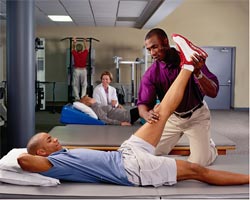By Mayra Ugaz
A debt life sentence--that is what college means in the

eyes of many college undergraduates. Interesting enough a college student will in fact spend most of their lives in this prison of debt, where they will endlessly continue aiming to pay back all money borrowed for their college education. This can last up to 35 years or more. Truthfully, this is unjustifiable; how can students only work to pay off loans for an education that should be free or at least less expensive? Undergraduate students are burdened and troubled with the expenses presented while attending college. The high tuition cost, housing, and the price of books are all expenditures but yet, huge essentials that dig an even deeper hole into the pockets of college students. Nonetheless, these expenses can be decreased if the college student approaches wiser decisions both financially and personal. There are solutions; the root of the problem purely lies on the lack of awareness.
When it comes to looking for a college, pretty much everything we think we know and quite a lot of what we do --is just wrong. So wrong that most students end up paying far more than what they have to, and graduate nearly smothered in a swamp of debt. I was intrigued to find just how much this burden is currently affecting my fellow West Virginia University undergrads.
This interest of mines leads me to conduct a survey on 100 undergraduates. The survey contained questions related to college expenses, present financial status, and career/major. What are the true factors causing financial distress to undergrads? The thought of attending college education is becoming far out of reach for many students and their families. Likewise, the cost of going to college severely impacts the students' earning potential once out on the real world. Consequently, most students along with their families seek the alternative of outside assistance. They must rely on additional resources to supplement the high cost of college education.
Not all government grants cover all the demand for the price of college alone, which leads them to create one tremendous debt burden with a goal to obtain a very much cherished degree. Charles Pope, editor for the Department of Education says, "Today's generation will start their lives soon after graduating with a $100,000 in debt before they get married and/or own a house." The main root to this alarming issue is the little knowledge on grants, loans, etc. and the lack of financial planning college students' bear.
The information is there, in fact there are numerous books and updated software available on the subject. However, the time is not always there. There lies the answer- implementation, but most people simply choose to not spend their time sorting through books of endless repeated material.
It is important to note that the cost of college has risen almost immediately, at twice the rate of inflation for the past 20 years. Since then, many undergraduates have become victims to this drastic growth on tuition cost. Universities individually provide current students with reliable information on the subject of financial aid. These advisors can help guide students and place them on the right path to avoid all unfavorable positions revolving debt.
West Virginia University offers financial counseling to its students Monday through Friday from 8:15 a.m. - 4:45 p.m.; these times are all open for students and they are always more than welcome to just visit on a walk-in basis. Also, the University has one specifically assigned site for all and any financial aid related concerns, the site it's the following: financialaid. This site has links to several useful websites that might be quite helpful to students. One of the links I would recommend to West Virginia University undergraduates would be the "Financial Planning", which is found on the Home page of the actual site. The following ten questions may be a good start to a successful discussion with your financial ad advisor.
1. What types of financial aid do you offer?
2. What are the requirements for need-based aid and for merit-based aid?
3. If I get a work-study job, how many hours will I be required to work per week?
4. Do you offer a tuition payment plan that lets me pay the college bills in monthly installments over the academic year?
5. If I don't apply for financial aid this year, will that affect my eligibility for financial aid in subsequent years?
6. If I win a scholarship, do you reduce my financial aid package?
7. Which application forms are required to apply for financial aid?
8. What are the deadlines for applying for financial aid?
9. Where can I find information about other sources of financial aid, such as state grant programs and scholarships?
10. When will I receive my financial aid award letter?
Conversely, the government assumes that most students should know these two rules of thumbs in order to gain advantage of financial assistance. If a family's income is above $75,000, they are unlikely to qualify for financial aid at most public universities. Secondly, if a family's income is above $120,000, they are unlikely to qualify for financial aid at most private colleges. However, this piece of information is not well-known or in most cases not properly shared with college students.
Although, the government does lend a hand with the cost of college education, most students and their families still will struggle to meet and pay all the balance left that is owed to the college. Lisa Chedekel, writer of, "States seek to Help", lays out a number of strategies that can enhance financial cash flow to provide funds for college expenses. Unfortunately, students cannot physically change the high prices of tuition; this is all under the dictation of our government. However, students are skilled enough to perhaps allow themselves to change their financial management ways currently practiced. Chedekel affirms that the cost of college can include a variety of items including some you might not expect. By understanding college costs, you can compare schools and explore options for how to lower your costs. Evidently, there will be other schools less expensive than West Virginia University; but ask yourselves this question- Will you ever find a place like Morgantown? For any true Mountaineer the answer is simply, no. And so exploring other options to lower expenditures becomes a must.
The key to solving any problem rests on signaling out the causes. For this particular issue: tuition, housing and cost of books are all expenditures that trigger and raise the total cost of college. Tuition covers the cost of taking courses and those course costs vary by school. As WVU students the university is our home; maybe the smartest approach would be to take a combination of three credit courses and fewer per semester. Although, this will push-back your graduation date; in the short-term, you are saving some amount of money for expenses that may present to you on that current year. This approach will decrease your overall tuition cost applied to you for that semester attended. If this does not seem adequately fitting for you individually; than possibly accepting bigger loans can be of great help. Loans normally are accompanied with large interest rates; nevertheless, students can in effect take action to decrease these rates or adjust their repayment plans.
When repayment begins on federal student loans, there are in fact several options you can choose from depending on your own personal financial situation. The standard repayment plan allows you to pay off your loans in a 10 year period. This is the quickest option that costs you the least amount of interest over the life of the loan. On the contrary, the extended plan allows you to pay off your loan in equal payment over a period of time up to 30 years. This will cost you more in interest, but could make your payments more affordable. Again, these two plans are routes to take given only your precise circumstance economically.
Another option to consider is the graduated plan. Charles says, "This repayment option again allows the borrower to make payments over a period up to 30 years; however, the payments start out low and gradually increase over the life of the loan." This last option is merely based on the assumption that the borrower's income will gradually increase during the life of the loan.
Furthermore, West Virginia University strives to give its students an exceptional learning experience. The school makes an effort to provide all mountaineers with any additional financial aid they may need. Scholarships are a great way to reward yourself by getting the most for your money. WVU has four scholarships available to its students: The Freshman Scholarship at West Virginia University, PROMISE Scholarship, Transfer Scholarship and Diversity Scholarship.
The application process for the Freshman Scholarship is actually quite easy. Students complete the admission application along with ACT/SAT scores sent to the school. These two steps get the process started fairly quickly. The deadline for most scholarships is February 1, of your senior year in high school. Then there is the Promise of Greatness at WVU; only sponsored by the state of West Virginia. It pays an amount of $4,705 to most colleges in the state. By March 1, the Promise application must be submitted. Also, students must file a FAFSA form before this date. The Promise Scholarship is a reward for your outstanding work and achievement. Interesting enough, up to 40 percent of all Promise scholarship recipients choose to attend WVU. On the other hand, the Transfer Scholarship is awarded to those students who have submitted their transfer application by July 1, 2013. All transfer students who maintain or currently have a 3.00 GPA with a minimum of 15 credit hours to WVU are eligible for this scholarship. The amount of money awarded will range from $500-$2000 per year. If the student meets these prerequisites then a letter will be sent in mid-June prior to attending the school. West Virginia University also has one last scholarship available to minorities. The school offers incoming freshmen the chance to apply for the Diversity Scholarship. This program was designed to attract talented minority students who are or have been misrepresented on college campuses.
What stops you from applying now? Re-think and consider these reasons: College costs a lot more than it used to, the state support for students have decreased substantially, and in fact most parents have no money to cover the cost. Scholarships are essential to ensure that you won't struggle to make huge student loan payments upon graduation. They are no longer just a bonus.
Secondly, the cost of housing is another expense that influences college debt. Based on the survey roughly 50% of undergraduates live off-campus and this surprisingly enough appears to be the best option weighted against on-campus housing. The cost of dorms at West Virginia University ranges from $729-$1,555 in the Honor Halls. For any student attending a college near home, then the smartest decision becomes evident- live at home. Others who are available to live off-campus do so. Definitely consider sharing a house or apartment with multiple roommates, this will for sure cut down the cost of rent and, even carpooling will save you money on gas. Joe Cline, writer for the College 101 website, says, "College students lack enthusiasm, they are plain lazy". Although many can find this somewhat offensive, Cline implies that most students possibly do not conduct an in depth adequate research when it comes down to comparing what is best for them. This turns out to in fact be true.
Personally, I live about 15 minutes from the school and I pay less than most undergrads surveyed. I chose to look into housing "far" from campus for two reasons; one being that I wanted to separate myself from downtown Morgantown (High Street) primarily -- WVU is the number one party school. Second reason was the fact that the price of housing does decrease according to distance. Moreover, West Virginia University sponsors upperclassmen to live on-campus as resident advisor to upcoming freshman. This option reduces the total cost of room and board. Keep in mind also, the idea to work part-time, but be sure to set your priorities first.
Likewise, the cost of books is also hurting the wallet of most college students. The survey conducted astonishingly showed that all 100 undergraduates believe the cost charged for books is unacceptable. C. Susan; writer for the Department of Education, understands the discontentment of students regarding the cost of books. She states, "The national average cost of books and supplies hovers around $1,100 per year." This figure can clearly alarm anyone, especially college students. What is the solution? Well, one must become more frugal when the season to purchase books comes around. There are actually several options to choose from that will able students to save a bit of cash in their pockets. One option would be to buy used books; both online and from the school itself.
Textbooks represent one of the largest expenses in any school's budget. The only real difference between new and pre-owned textbooks is the huge savings off publisher net prices. Students will receive high-quality textbooks and achieve the same performance. On some occasions visiting bookstores near the school will offer you the best deal. For example: The Book Exchange, Barnes and Nobles, Bookholders. All these stores are in fact in walking distance from the school. The amount of money saved with the purchase of a used book approximately is 30% off the actual cost. Second; this is an option quite hidden to many students-- the ability to simply deal with monthly renewals from the library. Yes, you are allowed to rent books at a much lower price. Thirdly, ask friends or others students whom have previously taken your course and make white-and-black copies on only chapters discussed in class.
There is really no reason to breakdown under the overwhelming stress of college. You have options and your West Virginia University degree awaits you. More than ever, attending college provides opportunities for graduates. Yes, it is outrageously expensive--but then again nothing is ever handed to you at zero charge. Today's economy is becoming increasingly competitive, and in order to give yourself the best chance for a well-paying job, you must first understand the importance of a college degree no matter its price tag.
 Choosing the right college career advisor is an important decision. Even if you choose to work with an established company, you still want to find a person that has specific insight into where you want to head and what you need to do to get there. If possible, take some time to meet with the professional in advance and bring along a few questions that will help you decide if this is the person that you want helping you plan out your future.
Choosing the right college career advisor is an important decision. Even if you choose to work with an established company, you still want to find a person that has specific insight into where you want to head and what you need to do to get there. If possible, take some time to meet with the professional in advance and bring along a few questions that will help you decide if this is the person that you want helping you plan out your future. Choosing the right college career advisor is an important decision. Even if you choose to work with an established company, you still want to find a person that has specific insight into where you want to head and what you need to do to get there. If possible, take some time to meet with the professional in advance and bring along a few questions that will help you decide if this is the person that you want helping you plan out your future.
Choosing the right college career advisor is an important decision. Even if you choose to work with an established company, you still want to find a person that has specific insight into where you want to head and what you need to do to get there. If possible, take some time to meet with the professional in advance and bring along a few questions that will help you decide if this is the person that you want helping you plan out your future.





